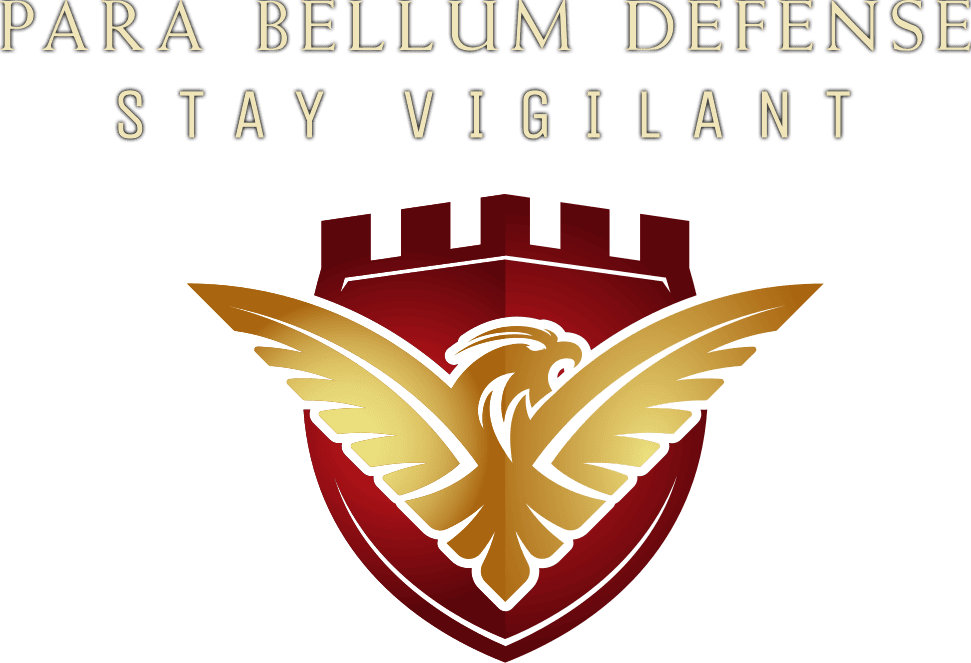
free shipping on orders over $25
We’re having a sale on all our products. Enter your email below to be notified about future sales.


We’re having a sale on all our products. Enter your email below to be notified about future sales.


Alright, to keep yourself safe without relying on a gun, you have a variety of effective strategies you can use. Start by focusing on sharpening your awareness and learning how to spot potential threats. This means paying attention to what’s going on around you and trusting your gut feelings. Learn self-defense techniques; knowing how to escape from grabs and target an attacker’s weak points can make a big difference. Think about carrying non-lethal weapons like pepper spray or a stun gun—just make sure you understand the laws and how to use them properly. And remember the importance of having a secure home, whether it’s through better locks or security systems. As you dig deeper, you’ll discover even more ways to protect yourself.
When it comes to learning how to defend yourself, it’s essential to know that effective self-defense techniques can give you the confidence to stay safe in dangerous situations. Self-defense isn’t only about being strong physically; it’s about being aware, staying alert, and understanding how to respond. You need to be able to spot potential dangers and avoid them whenever you can. This means keeping an eye on what’s happening around you and trusting your gut if something doesn’t seem right.
Learning the basics of self-defense can greatly boost your confidence. Start with simple techniques that don’t require you to be a martial arts expert. For instance, knowing how to break free from an attacker’s grasp or using your body’s natural weapons, such as elbows and knees, can be incredibly effective. Aim for vulnerable areas like the eyes, nose, throat, and groin.
It’s also essential to assert yourself vocally. Yelling for help or to attract attention can deter an attacker and draw assistance from others. Remember, self-defense is about using your smarts as much as your physical abilities. By staying calm and thinking quickly, you can navigate dangerous situations more effectively.
In addition to mastering self-defense techniques, carrying non-lethal weapons can greatly enhance your ability to protect yourself in dangerous situations. These tools offer a less lethal option, guaranteeing you’ve got a means to defend yourself while minimizing the risk of causing permanent harm.
Pepper spray is a popular choice. It’s compact, easy to use, and incredibly effective at incapacitating an attacker, giving you time to escape. Just make sure you’re familiar with how to use it, and that it’s legal in your area.
A stun gun is another potent option. It delivers a high-voltage shock that temporarily disables an assailant. Like pepper spray, you’ll need to confirm its legality in your location and learn how to operate it safely.
Tactical pens and personal alarms might seem less intimidating, but don’t underestimate their effectiveness. A tactical pen can be used as a stabbing tool in close combat, while a personal alarm can draw attention to your situation, potentially scaring off the attacker.
While arming yourself with non-lethal weapons is a strong step toward personal safety, it’s equally important to guarantee your home is a fortress against potential intruders.
Start by upgrading your locks. Deadbolts and smart locks add an extra layer of security, deterring would-be burglars. Don’t overlook the significance of lighting; motion-sensor floodlights around your property can scare off trespassers before they even reach your doors or windows.
Consider installing a security system. Today’s smart home security systems offer a range of options, from doorbell cameras that allow you to monitor your front door from anywhere to full-house systems that alert you and the authorities at the first sign of an intrusion. These systems often come with apps that let you control your home’s security from your smartphone.
Don’t forget about the basics, like securing sliding doors with bars and ensuring windows are locked. Sometimes, the simplest measures are the most effective.
Lastly, make it look like someone is always home. Use timers on lights, TVs, and radios to create the illusion of activity, deterring potential intruders. Your home’s security is your first line of defense; investing in it wisely can make all the difference.
Boosting your situational awareness can greatly reduce your vulnerability to unexpected threats. It’s about being more observant of your surroundings and understanding the context of what’s happening around you. You don’t need special skills, just a commitment to paying more attention to the details in your environment.
Start by regularly scanning your surroundings, especially in unfamiliar or crowded places. Look for exits and potential hazards. Notice the behavior of people around you. Are they acting in a way that seems out of place or suspicious? Trusting your instincts is key; if something feels off, it probably is.
Limit distractions, especially from your phone, when walking in public areas. Being engrossed in your screen makes you an easier target for those looking to take advantage of someone not paying attention.
Practice the ‘what if’ game. Ask yourself how you’d react in various scenarios. What if someone approached you aggressively? What if you noticed someone following you? Planning your responses to potential threats can help you react more effectively if they ever occur.
Improving your situational awareness is about making these practices a part of your daily routine. The more you do it, the better you’ll get at spotting potential dangers before they escalate.
Have you considered how developing physical fitness can greatly enhance your personal safety? Being physically fit isn’t just about looking good; it’s an essential aspect of being able to defend yourself or escape danger. You don’t need to become a professional athlete, but improving your strength, endurance, and agility can greatly boost your chances of keeping safe in various situations.
Here’s a simple guide to get started:
| Activity | Benefit | Frequency |
|---|---|---|
| Running | Increases endurance and improves cardiovascular health, enabling you to run away from threats if necessary. | 3-4 times a week |
| Strength Training | Builds muscle and improves overall strength, which can be vital in self-defense scenarios. | 2-3 times a week |
| Flexibility Exercises | Enhances agility and reduces the risk of injuries, allowing you to move more freely and react quickly. | Daily |
Start with activities you enjoy, and gradually increase the intensity and frequency. Remember, it’s not about competing with others but about enhancing your ability to protect yourself. Regular physical activity not only boosts your fitness but also your confidence in handling physical confrontations or escaping dangerous situations effectively.
Adopting a safety-first mindset is essential for effectively protecting yourself in any situation. It’s not just about physical strength or the ability to defend yourself; it’s about thinking ahead and being prepared for any scenario. You’ve got to recognize potential threats before they become actual problems. This means staying aware of your surroundings at all times and trusting your gut when something feels off.
You should also make a habit of planning your routes, especially when traveling to unfamiliar places. Consider the safest paths and be aware of emergency exits and safe havens. It’s not about being paranoid, but prepared.
Moreover, don’t underestimate the power of de-escalation techniques. Knowing how to calm a tense situation with your words can prevent it from escalating into something more dangerous. Practice clear, calm communication and always look for a peaceful way out.
Lastly, keep your personal information private and be cautious about what you share online. Cyber threats are real, and protecting your digital footprint is just as important as physical safety.
Embracing a safety-first mindset means being proactive rather than reactive. It’s about making smart choices that keep you out of harm’s way, ensuring you’re always one step ahead.
Yes, wearing protective clothing can effectively reduce your risk of injury. It’s particularly useful in scenarios where you might face physical threats. Options like reinforced jackets or cut-resistant fabrics can offer some level of protection.
Absolutely, pets, especially dogs, can deter attackers. They’re not just loyal companions; their presence alone can make you less of a target. Their barks can alert you and even scare off potential threats.
To secure your online data from threats, you’ll want to use strong, unique passwords and enable two-factor authentication. Don’t forget to regularly update your software and be cautious of suspicious emails or links.
You’re wondering if self-defense classes are tax deductible. Generally, they aren’t unless you’re self-employed and can prove they’re essential for your business. Always consult a tax professional to understand your specific situation better.
Yes, your diet can impact your self-defense capabilities. Eating healthily boosts your energy, agility, and overall physical condition, making you more capable of defending yourself if you’re ever in a dangerous situation.
Para Bellum Defense
133 Palm Drive
Winter Haven, FL 33880
Telephone: 585-284-6669

Matchless topic
hello there and thank you for your information – I’ve certainly picked up anything
new from right here. I did however expertise
a few technical issues using this web site, as I experienced to reload
the website lots of times previous to I could get it
to load correctly. I had been wondering if your web host is OK?
Not that I’m complaining, but sluggish loading instances times will often affect your placement in google and could damage your high quality score if advertising and marketing with Adwords.
Anyway I am adding this RSS to my email and could look
out for much more of your respective intriguing content.
Make sure you update this again very soon..
Escape roomy lista
Hello, thank you for the helpful information. I will look into this for sure.
I like this site it’s a master piece! Glad I noticed
this on google..
Thank you for your kind words. Check back often as we add new stuff daily.